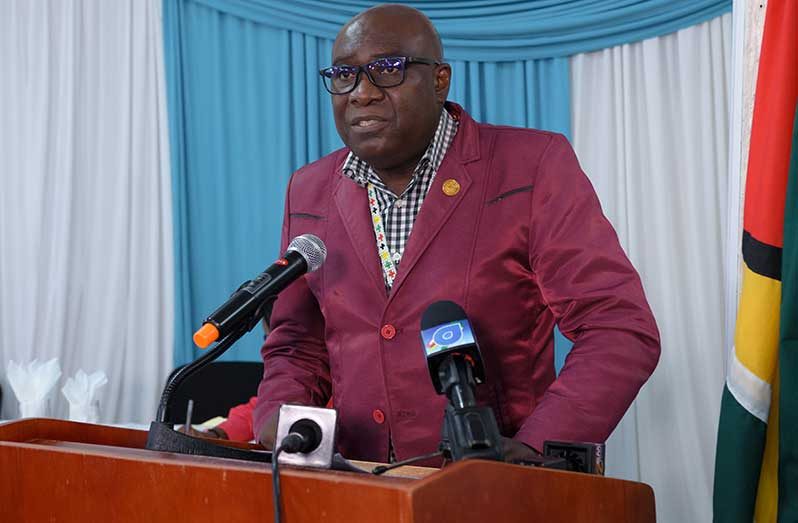–institutions to be strengthened to guard against crises, says Dr. Hutson
THE Ministry of Education has launched a National Risk Management Policy to target current and potential disruptions to the delivery of education across the country, by strengthening the capacity of local institutions.
Speaking during the launch of the new policy at the National Centre for Education Resource Development (NCERD), Chief Education Officer (CEO), Dr. Marcel Hutson, said that the Education Ministry has rolled out several measures to enhance its capacity to mitigate vulnerabilities and improve the resilience of communities by developing tools for disaster risk management.

The national policy, according to Dr. Hutson, focuses on three key aspects: access, quality and management.
He further related that the policy aims to ensure that there is equitable access to education, and it is tailored to promote a safe and protective learning environment for all.
An environment for all includes a space in the education systems for the migrant population in Guyana. To this end, the policy caters to the needs of the migrant population and establishes the grounds for them to have a right to continue educating themselves irrespective of their legal migration status.

“The Government of Guyana has brought relief to our people in the past, we recognised how important it is to ensure systems are in place for the continuity of the education of our children,” Dr. Hutson said.
Fundamentally, he said that the plan is to alleviate, if not eradicate, all issues that stymie the advancement of the education system.
“We recognise that in order to face crisis in the future, it is essential for the Ministry of Education to have a sufficient institutional, organisational and individual capacity to cater to such problems at the central and regional levels,” Dr. Hutson related.
The policy was crafted with inputs from international partners such as the United Nations, local partners and the regional education officers from all 11 education districts.
The collaborative approach, Dr. Hutson said, was critical since the policy garnered buy-in from those stakeholders who will be responsible for its implementation.
An example of Guyana’s ability to manage education amidst a crisis is the authorities’ response to the COVID-19 pandemic and the effects it has had on the delivery of education. In Dr. Hutson’s view, the effects of the pandemic and the physical closure of schools brought the best out of the Education Ministry.
“We have a plan and we trust that this plan will be helpful when or if this nation finds itself in such situations again,” the Chief Education Officer said.
Resident United Nations Children’s Fund (UNICEF) Representative, Nicholas Pron, said: “UNICEF shares the pride of the ministry and is pleased that the ministry has selected our organisation to work side by side.”
Pron added that the policy will increase the ministry’s ability to predict, prepare and prevent crisis. He noted too that the policy also establishes procedures to recognise the impact of disasters and how to cope with the results.
United Nations High Commissioner for Refugees (UNHCR) liaison to Guyana, Cecille Guerrero, said too that the policy acknowledges the challenges faced in reaching children in the hinterland regions of the country.








.png)







